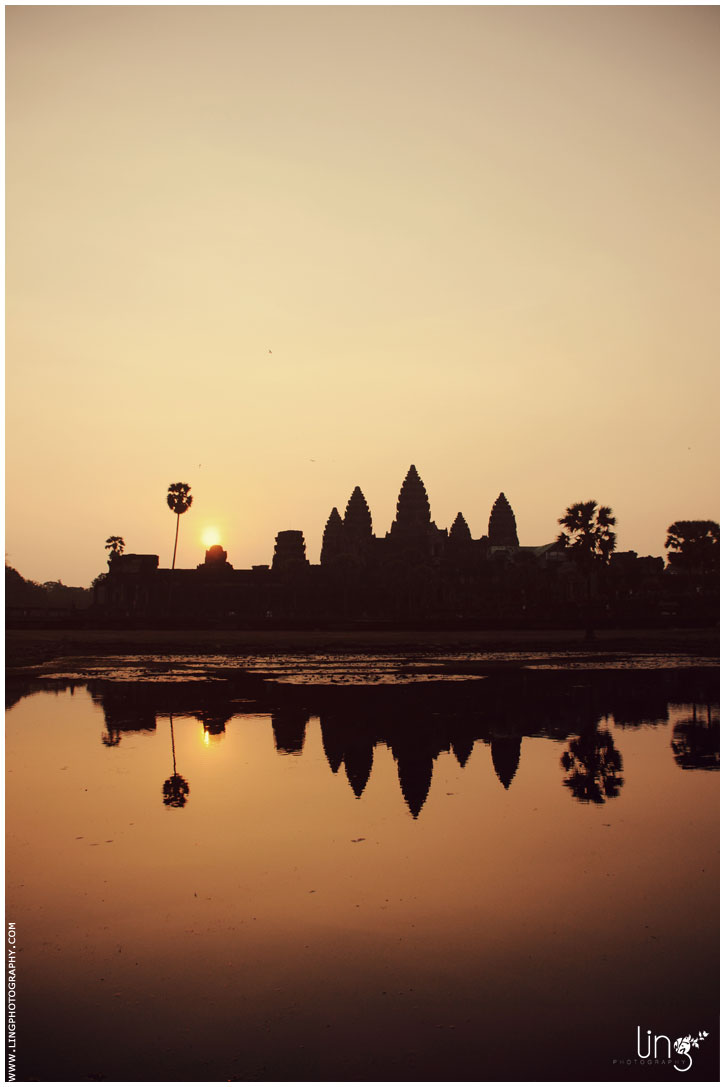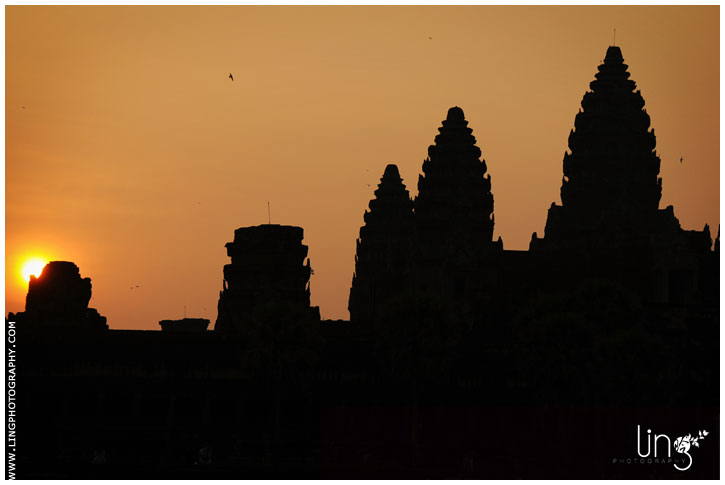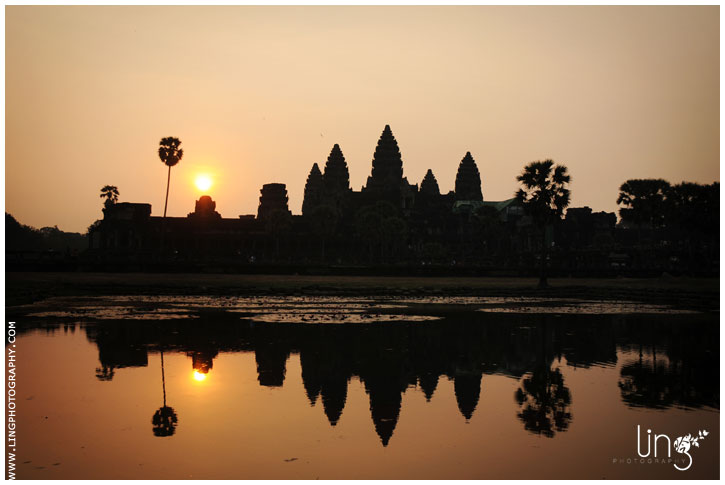Day two : Angkor Wat, Ta Prohm, Bayon, Elephant Terrace
We started the day early with a sunrise view at Angkor Wat. It was breathtaking.


We visited Ta Prohm after breakfast. Ta Prohm was built in the late 12th and early 13th centuries and originally called Rajavihara. It was founded by the Khmer King Jayavarman VII as a Mahayana Buddhist monastery and university.
The temple of Ta Prohm was used as a location in the film Tomb Raider.


The smiling buddha carving peeking out within the roots of the tree.








Our amazing tour guide, Mr. Khem.
The conservation and restoration of Ta Prohm is a partnership project of the Archaeological Survey of India and the APSARA (Authority for the Protection and Management of Angkor and the Region of Siem Reap).
We then went back to Angkor Wat. Built by the Khmer King Suryavarman II in the early 12th century, Angkor Wat is the largest Hindu at first, then Buddhist temple complex and the largest religious monument in the world. The temple is a symbol of Cambodia, even appearing on its national flag.











Auto rickshaws, or more commonly known as tuk-tuk, are a common means of public transportation in Siem Reap.
Built in the late 12th or early 13th century as the official state temple of the Mahayana Buddhist King Jayavarman VII, the Bayon stands at the centre of Jayavarman’s capital, Angkor Thom.

The outer wall of the outer gallery features a series of bas-reliefs depicting historical events and scenes from the everyday life of the Angkorian Khmer.
The Bayon’s most distinctive feature is the multitude of serene and massive stone faces on the many towers which jut out from the upper terrace and cluster around its central peak.


The Terrace of the Elephants is part of the walled city of Angkor Thom. It was used by king Jayavarman VII as a platform from which to view his victorious returning army.

Part 3 coming right up!
warmly,
Ai Ling
related posts : siem reap, cambodia – day one | siem reap, cambodia – day three
share this post!


